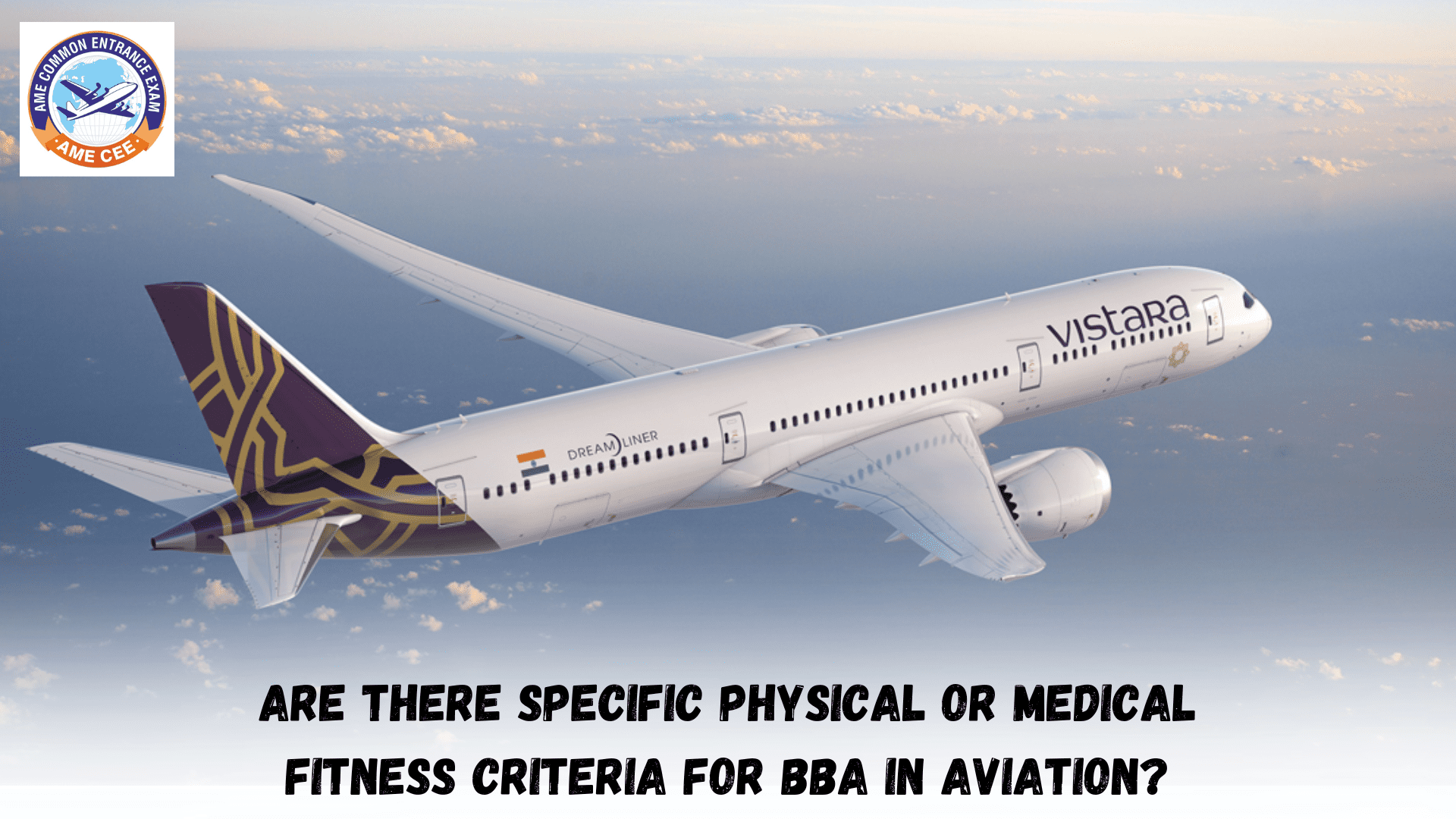When pursuing a career in aviation, the physical and medical fitness requirements can vary depending on the role you’re aiming for. However, if you are planning to pursue a BBA (Bachelor of Business Administration) in Aviation, the medical or physical fitness criteria are not as stringent as those required for pilots or flight engineers. Unlike other aviation programs that focus on flight training, the BBA in Aviation is more focused on management, operations, and business administration within the aviation industry.
General Physical or Medical Fitness Criteria for BBA in Aviation
While pursuing a BBA in Aviation, the following points are generally considered by most educational institutions:
- General Health Standards: Although BBA in Aviation programs do not have strict medical criteria like pilot training courses, students are generally expected to be in good health. Most universities do not impose specific physical health requirements, but applicants may need to submit a general health certificate to confirm that they are fit for academic studies.
- Vision Standards: Vision standards are typically less strict for a BBA in Aviation than they are for pilot programs. However, students should have normal or corrected-to-normal vision (with glasses or contact lenses, if necessary) as a basic requirement, especially if you’re looking to enter certain roles after completing the program that might involve fieldwork, site visits, or airport inspections.
- Hearing: Clear hearing is important for general well-being and communication, particularly for students involved in field projects or internships in operational environments. Institutions may recommend a hearing test, but this is typically not a strict requirement.
- No Serious Medical Conditions: While the program doesn’t require a full medical fitness test, candidates must ensure they don’t suffer from any serious medical conditions that could hinder their ability to attend classes or internships. For instance, certain chronic conditions that could impair mobility, cognitive function, or overall health might be a concern in some cases.
- Mental and Emotional Fitness: Since the BBA in Aviation often leads to leadership or managerial roles, students must have strong decision-making, stress-management, and communication skills. Institutions may not require formal mental health assessments, but they do look for students who are emotionally stable and capable of handling the demands of the program.
- Airport and Airline Industry Requirements (Post-Graduation): While there are no strict medical fitness criteria for entering a BBA in Aviation, students should be aware that certain aviation companies or airports may have their own physical or medical fitness standards when hiring for specific managerial positions after graduation. For example, if you plan to work in airport operations, airline management, or cargo logistics, being in good physical health might be a general expectation, as you may need to travel or work in fast-paced environments.
Medical Requirements for Specific Aviation Roles
It is also important to note that specific aviation-related careers within the industry may require meeting certain physical or medical fitness standards. Here’s a quick overview of how the requirements differ based on roles:
- Pilots: Pilots have the most stringent medical fitness criteria. They must undergo comprehensive medical examinations, including tests for vision, hearing, blood pressure, and overall health. The medical standards vary depending on the type of pilot license (Class 1 for commercial pilots, Class 2 for private pilots).
- Air Traffic Controllers: Similar to pilots, air traffic controllers must meet specific medical standards, including good vision, hearing, and cognitive ability to ensure they can manage the high-stress environment effectively.
- Ground Crew and Cabin Crew: Airline ground crew or cabin crew roles typically have moderate physical and medical fitness requirements. These include general health standards, vision, hearing, and mobility to ensure they can perform their duties safely and efficiently.
Conclusion
For those pursuing a BBA in Aviation, there are typically no specific physical or medical fitness criteria that you must meet beyond being in generally good health. However, a certain level of physical and mental fitness is essential to ensure that you can handle the demands of the program and the fast-paced, high-pressure nature of the aviation industry post-graduation.


